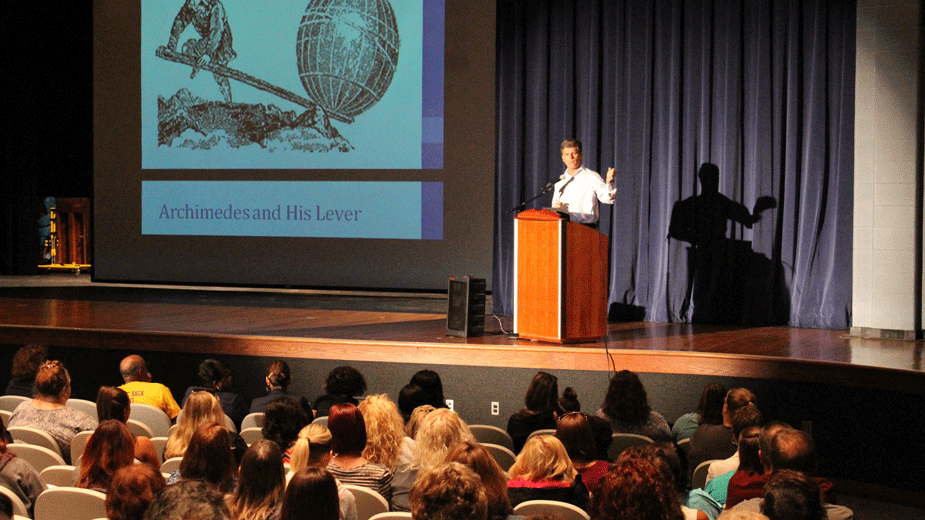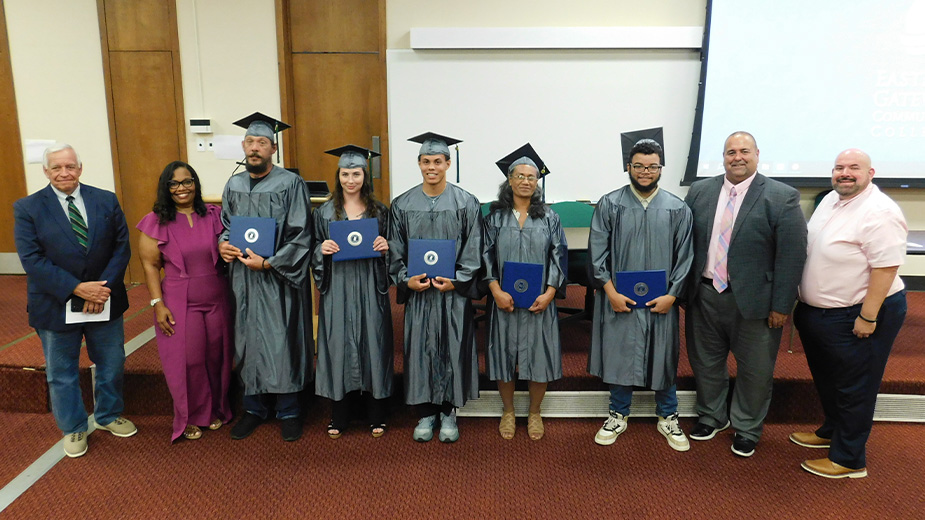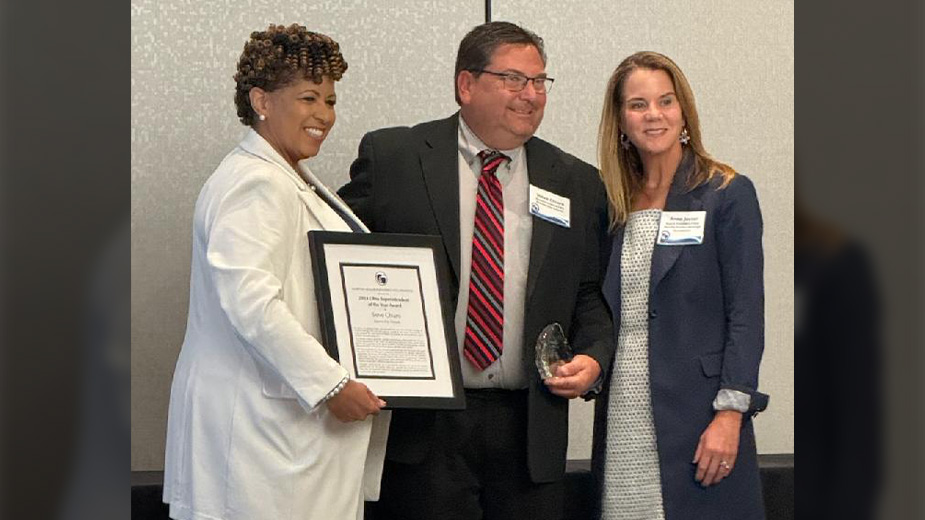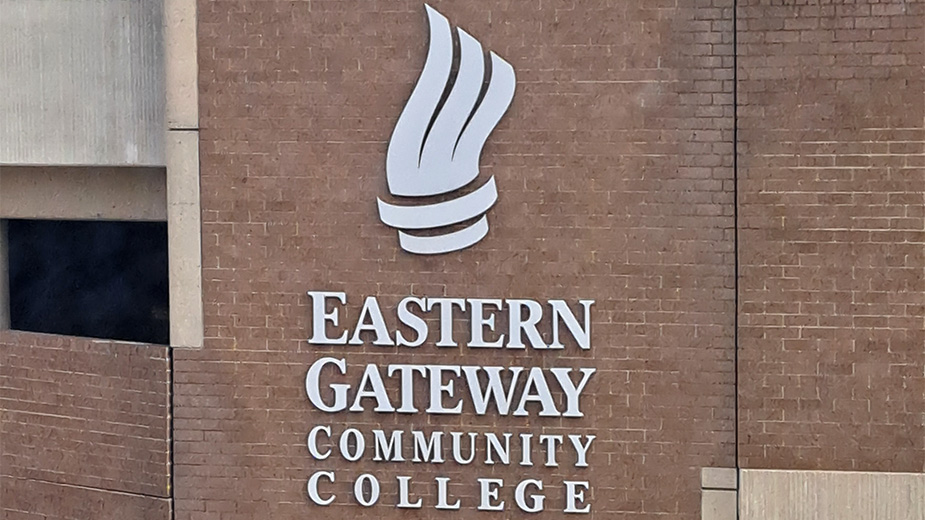Shriver Gives City Teachers Lesson on Empathy
YOUNGSTOWN, Ohio – When it comes to incorporating social and emotional learning into curricula, the question to ask isn’t “What can we add?” but rather “How can we add it?”
As part of a week-long professional development series before Youngstown City Schools kicks off the new academic year, Timothy Shriver, chairman of the Collaborative for Academic Social and Emotional Learning, spoke to teachers Friday morning.
“The right leverage can change everything. The right strength, the right place to stand,” he told the audience at East High School. “If you ask me about the condition of the country, our young people and our communities today and what can make a difference, it’s educators.”
The system discussed by Shriver and the collaborative focuses on covers five areas: self-awareness, self-management, social awareness, relationship skills and responsible decision-making. Among the most common lessons are communication and empathy.
To teach in these areas, educators don’t have to set aside time to practice self-reflection, explained Youngstown City Schools CEO Krish Mohip, they can incorporate them into their lesson plans by asking how students feel about the topic or how they relate to it or how they would act in the situation presented.
“It’s not something additional they have to do. It’s not 10 minutes we do this per day. This is a philosophy that we buy into,” Mohip said. “There are some skills that we teach, but these skills are transferable around all parts of their academic day and personal lives.”
Another core part of social and emotional learning, frequently referred to as SEL, is relationships. Infants as young as 12 months can pick up on cues from others and follow their lead in something as simple as where to look for a picture, Shriver noted. Imagine, then, a classroom of 5- and 6-year-olds learning stress management and communication techniques.
“When you can teach kids how to share those things in classrooms and communities, you create better safety alongside better [academic] challenge,” he said. “This isn’t a strategy for coddling children or for reducing the rigor of the academic world. It’s a strategy for challenging children and increasing the rigor of instruction, but doing it in a way that inspires the child to want to learn.”
In addition to his work for the collaborative, Shriver is also chairman of the Special Olympics. Schools – both educators and students – can benefit from being inclusive at all levels, including with students who have special needs, he said.
“A child with Down syndrome or autism or Williams syndrome isn’t necessarily just a child with special needs. They’re also one with special gifts,” he said. “If engaged in the life of a school, like if they’re invited to play sports through the Special Olympics movement, they can be teachers in empathy, teachers of perseverance and teachers of inclusion.”
Carrying these core elements through a child’s primary education have proven results, Shriver said. A study by the Center for Benefit-Cost Studies in Education at Columbia University found that every dollar spent on SEL creates $11 in long-term benefits such as higher lifetime earnings, improved health and reduced juvenile crime.
Meanwhile, a Casel analysis found that over 3 1/2 years, students involved in the organization’s social and emotional learning programs had test scores 13% higher than students who weren’t enrolled.
“This is the issue that will transform our schools,” said U.S. Rep. Tim Ryan, D-13 Ohio, following Shriver’s lecture. “Knowing the character of our kids, the emotional health of kids, the discipline of our kids comes before academics and girds academics. What you see is that when you care about kids, their character and emotional health, their academic achievement goes up.”
Ryan has been instrumental in securing federal grants to implement social and emotional learning programs in the Youngstown and Warren city schools.
Beyond just test scores, Shriver noted in his remarks, using social and emotional learning as part of the curriculum has an impact on conduct disorders.
“These interventions reduce them by 10%. For one kid, the cost of a lifelong conduct disorder is nearly $4 million. The prevention of one conduct disorder is a $4 million piece of business,” he said. “The addition of one kid to a college degree is a $1 million cost savings to Youngstown, to Ohio, to the United States.”
Since he came aboard as sCEO just more than a year ago, Mohip has been working to incorporate more SEL into classes. Last year, for example, students in the Rayen Early College took a class on mindfulness that incorporated Ryan’s book A Mindful Nation, as well as a visit from the congressman himself.
“As a leadership team, we’ve been looking at social emotional learning all year long,” Mohip said. “That’s why we have deans in every school, why we have social workers in every school. We’re shifting the work of our counselors so they can go into classrooms and proactively teach these skills that kids need.”
Pictured: Timothy Shriver, chairman of the Collaborative for Academic Social and Emotional Learning speaks to Youngstown City School’s teachers.
Copyright 2024 The Business Journal, Youngstown, Ohio.



